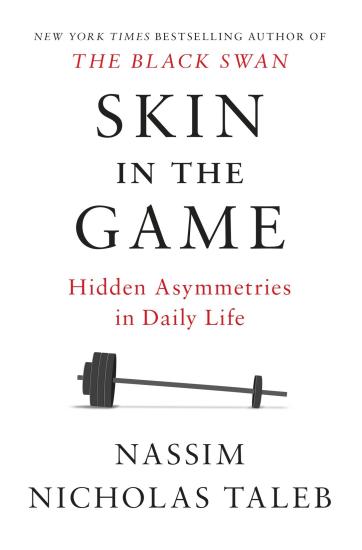
Rating: ****
Tags: Business & Economics, Economics, Theory, Macroeconomics, Philosophy, Social, Motivational, Finance, Financial Risk Management, Decision-Making & Problem Solving, Psychology, Applied Psychology, Mathematics, Game Theory, General, Leadership, Self-Help, Personal Growth, Lang:en
Publisher: Penguin UK
Added: May 13, 2018
Modified: November 5, 2021
Summary
#1 NEW YORK TIMES BESTSELLER • A bold work from the author of The Black Swan that challenges many of our long-held beliefs about risk and reward, politics and religion, finance and personal responsibility**
In his most provocative and practical book yet, **** one of the foremost thinkers of our time redefines what it means to understand the world, succeed in a profession, contribute to a fair and just society, detect nonsense, and influence others. Citing examples ranging from Hammurabi to Seneca, Antaeus the Giant to Donald Trump, Nassim Nicholas Taleb shows how the willingness to accept one’s own risks is an essential attribute of heroes, saints, and flourishing people in all walks of life.
As always both accessible and iconoclastic, Taleb challenges long-held beliefs about the values of those who spearhead military interventions, make financial investments, and propagate religious faiths. Among his insights:
• For social justice, focus on symmetry
and risk sharing. You cannot make profits and
transfer the risks to others, as bankers and large
corporations do. You cannot get rich without owning your own
risk and paying for your own losses. Forcing skin in the game
corrects this asymmetry better than thousands of laws and
regulations.
• Ethical rules aren’t
universal. You’re part of a group larger than
you, but it’s still smaller than humanity in general.
• Minorities, not majorities, run the
world. The world is not run by consensus but by
stubborn minorities imposing their tastes and ethics on
others.
• You can be an intellectual yet still be an
idiot. “Educated philistines” have been
wrong on everything from Stalinism to Iraq to low-carb diets.
• Beware of complicated solutions (that someone
was paid to find). A simple barbell can build muscle
better than expensive new machines.
• True religion is commitment, not just
faith. How much you believe in something is
manifested only by what you’re willing to risk for
it.
The phrase “skin in the game” is one we have often heard but rarely stopped to truly dissect. It is the backbone of risk management, but it’s also an astonishingly rich worldview that, as Taleb shows in this book, applies to all aspects of our lives. As Taleb says, “The symmetry of skin in the game is a simple rule that’s necessary for fairness and justice, and the ultimate BS-buster,” and “Never trust anyone who doesn’t have skin in the game. Without it, fools and crooks will benefit, and their mistakes will never come back to haunt them.” **